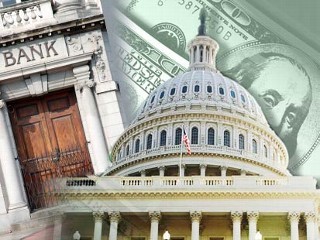The current economical climate is struggling and it’s not the residents who have to tighten their purse strings, the countries themselves are struggling to cope with their increasing levels of debt.
Within the Euro zone, there have been multiple stories flying around about different countries bailing out others at the cost of the common taxpayer; however this is not always the case. Northern Euro zone taxpayers won’t have actually contributed to any bailout. Countries such as Germany and Finland have managed to save billions of Euros by reviewing how they manage their money in the financial markets.
Germany consider themselves to be in a stronger financial position simply due to reducing their borrowing costs by 2%. Cities within Germany, such as Berlin, have contributed to this loss; studies show that between 2010 and 2012, Berlin managed to save 10.2 billion Euros by reducing borrowing costs.
All these borrowing reductions throughout Germany will contribute to the country loosing around 3 percentage points off the government debt ratio, and therefore acquire additional savings.
Germany is not alone in reducing borrowing costs, Finland and Austria have also reduced their borrowing, albeit not as much as Germany have managed to do, but still significant enough to confirm they’ve done it off their own back and not relied on hand outs.
The fact of the matter is, the difference between lending and giving has ceased to exist and this lack of clarity and explanation causes confusion and anger amongst taxpayers. The risks change each day, and with the media coverage on the situation in countries such as Greece suggesting the situation is dismal, simply is not the case. Greece’s situation continues to improve, not only that, none of the bailout money it received was from taxpayers, but simply financed on markets via the Euro zone bailout fund.
In general there is panic and confusion, money is tight and the public want to ensure that their countries are spending their cash wisely. This is essentially what is happening, and without these Euro zone bailouts, the alternative would be a euro zone break-up which would be a much costlier affair for individual tax payers and could damage them even further. For example, if Germany went back to it’s original Deutschmark, its annual GDP would be 0.5 points lower between 2013 and 2025, contributing to a loss of 1.2 trillion Euros.
It’s these facts that sometimes fail to filter down to the general public, but it’s precisely this information that needs to be broken down and explained to help regain faith that the manner in which the markets are currently operating is indeed, the most cost effective for everyone at this time.
Author Profile
- I have been writing articles about finance, the stock market and wealth management since 2008. I have worked as an analyst, fund manager and as a junior trader in 7 different institutions.
Latest entries
- June 4, 2025NewsWireHow Webmasters Are Paying the Price for the AI Boom
- April 24, 2025NewsWireCapital One-Discover Merger Reshaping the Credit Card Industry
- April 15, 2025NewsWireMichael Saylor’s Strategy New $286 Million Bitcoin Purchase
- February 14, 2025NewsWireBreaking Down the U.S. Budget





